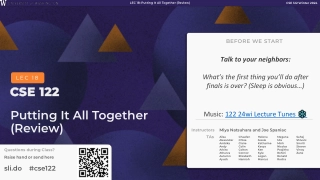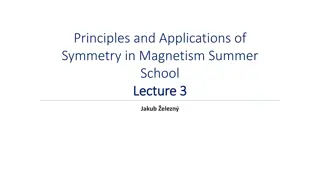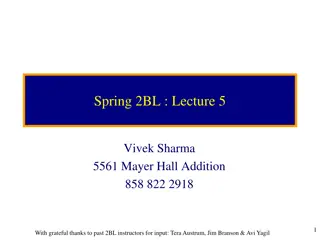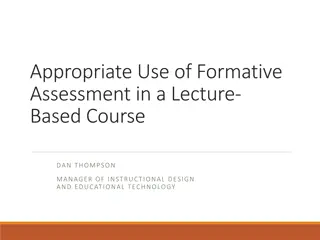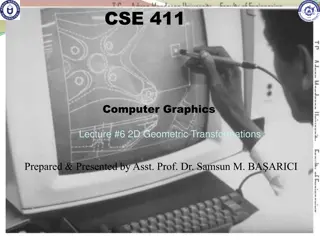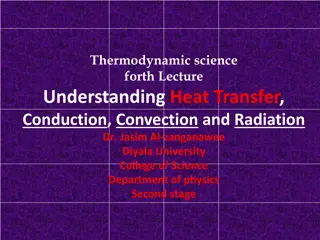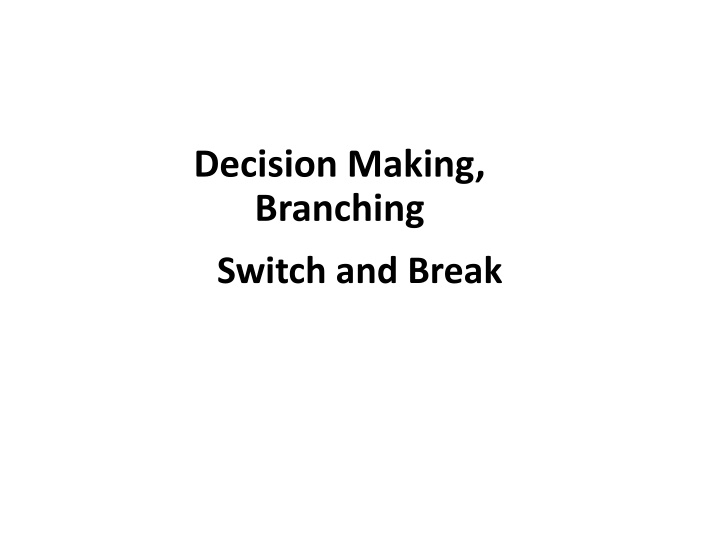
Switch Statements in Programming
Explore the concept of switch statements in programming, a powerful branching tool that allows for executing different code based on multiple conditions. Learn how to effectively use switch statements in your code to enhance control flow and decision-making processes.
Download Presentation

Please find below an Image/Link to download the presentation.
The content on the website is provided AS IS for your information and personal use only. It may not be sold, licensed, or shared on other websites without obtaining consent from the author. If you encounter any issues during the download, it is possible that the publisher has removed the file from their server.
You are allowed to download the files provided on this website for personal or commercial use, subject to the condition that they are used lawfully. All files are the property of their respective owners.
The content on the website is provided AS IS for your information and personal use only. It may not be sold, licensed, or shared on other websites without obtaining consent from the author.
E N D
Presentation Transcript
Decision Making, Branching Switch and Break
The switch Statement Switch is multiple branching statement where based on a condition, the control is transferred to one of the many possible points. Enables the program to execute different statements based on an expression that can have more than two values. Also called multiple choice statements. The expression provided in the switch should result in a constant value otherwise it would not be valid. 2 3/18/2025
The switch statement switch ( expression ) { case value1: case value2: case value n: default: The expression is successively compared against the values value1, value2, ..., valuen. If a case is found whose value is equal to the value of expression, the program statements that follow the case are executed. program statement program statement ... break; program statement program statement ... break; The switch test expression must be one with an integer value (including type char) (No float !). The case values must be integer-type constants or integer constant expressions (You can't use a variable for a case label !) program statement program statement ... break; program statement program statement ... 3/18/2025 } 3
switch-control flow control flow 4 3/18/2025
switch-example 1 example 1 #include<stdio.h> int main() { int choice; printf( Enter your choice: 1-yes, 2-no\n ); scanf( %d ,&choice); switch(choice) { case 1: printf( YESSSSSSS ); break; case 2: printf( NOOOOOO ); break; default: printf( DEFAULT CASE . ); } printf( The choice is %d ,choice); return 0; } 3/18/2025 5
switch-example 2 example 2 scanf( %d ,&mark); case 50: case 40: switch (mark) grade= C break; { case 100: case 90: grade= D break; case 80: grade= A ; break; default: grade= F ; } printf( %c ,grade); break; case 70: case 60: grade= B ; break; 3/18/2025 6
An Example switch case char ch; scanf)( %c ,&ch); switch(ch) { case a : printf( Vowel ); break; case e : printf( Vowel ); break; case i : printf( Vowel ); break; case o : printf( Vowel ); break; case u : printf( Vowel ); break; default: printf( Not a Vowel ); } 7 3/18/2025
An Example switch case char ch; scanf( %c ,&ch); switch(ch) { case a : case e : case i : case o : case u : printf( Vowel ); break; default: printf( Not a Vowel ); } 3/18/2025 8
Example - switch case *': result=value1*value2; printf( %f ,result); break; case /': if ( value2 == 0 ) printf( Division by zero.\n ); else result=value1 / value2; printf( %f ,result); break; default; printf( Unknown Operator ); } return 0; /* Program to evaluate simple expressions of the form value operator value */ #include <stdio.h> int main (void) { float value1, value2; char operator; float result; printf("Type in your expression.\n ); scanf( %f %c %f , &value1,&operator,&value2); switch (operator) {case '+': result=value1+value2; printf( %f ,result); break; case '-': result=value1-value2; printf( %f ,result); break; } 9 3/18/2025
What is the output of the following code snippet? int iNum = 2; switch(iNum) { case 1: case 2: break; case 3: printf( THREE ); break; default: printf( INVALID ); } printf( ONE ); break; printf( TWO ); break; 10 3/18/2025
What is the output of the following code snippet? iNum = 2; switch(iNum) { default: printf( INVALID ); case 1: printf( ONE ); case 2: printf( TWO ); break; case 3: printf( THREE ;) } 11 3/18/2025
What is the output of the following code snippet? switch ( switch (iDepartmentCode iDepartmentCode) ) { { case 110 : case 110 : printf printf( HRD ); case 115 : case 115 : printf printf( IVS ); case 125 : case 125 : printf printf( E&R ); case 135 : case 135 : printf printf( CCD ); } } ( HRD ); ( IVS ); ( E&R ); ( CCD ); IVS E&R CCD Assume Assume iDepartmentCode iDepartmentCode is 115 find the output ? find the output ? is 115 12 3/18/2025
What is the output of the following code snippet? int iNum = 2; switch(iNum) { case 1.5: printf( ONE AND HALF ); break; case 2: printf( TWO ); case A : printf( A character ); } 13 3/18/2025
Check Validity: switch(1+2+23) switch(1*2+3%4) switch(a*b+c*d) switch(a+b+c) Important Points: Duplicate case values are not allowed Nesting of switch statements is allowed 3/18/2025 14
int main() { int x = 1; switch (x) { x = x + 1; case 1: printf("Choice is 1"); break; case 2: printf("Choice is 2"); break; default: printf("Choice other than 1 and 2"); break; } return 0; } Output:: Choice is 1 3/18/2025 15
int main() { int x = 1; switch (x) { case 2: printf("Choice is 1"); break; case 1+1: printf("Choice is 2"); break; } return 0; } Output:: Compiler Error: duplicate case value 3/18/2025 16

